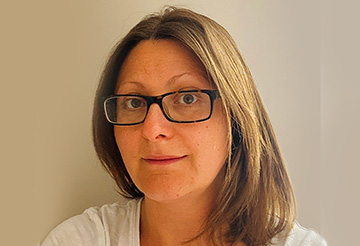About
Kate is an integrative therapist and has had training in several different theoretical approaches that have become integral to how she works. She will use these as a way to deepen exploration and understanding, while providing a relationship that feels compassionate, respectful and constructive. She draws specifically from person-centred, relational, transactional analysis, internal family systems, mindfulness and somatic approaches.
Kate specialises in working with trauma, post-traumatic stress disorder (PTSD) and complex PTSD (CPTSD), and the imprint it leaves on everyday life. Reactions to trauma can have a deep impact on a person's life and it is not uncommon to live with this for years after the traumatic event or experience occurred. Life may feel unsafe and dangerous. Thoughts, choices, relationships and ultimately, how a person lives in the world can become shaped by the experience of trauma. Common problems can also include anxiety, depression, substance misuse, self-harm and thoughts of suicide. Pervasive feelings of guilt and shame can also be present for many.
Kate has a structured and systematic approach to trauma recovery that moves through three phases: safety and stabilisation, trauma processing, and, finally, a period of integration and reflection. She is trained in different evidence-based trauma-focused treatments developed to work with the different experiences that trauma can bring, such as flashbacks, nightmares, intrusive thoughts and images, dissociation and dissociative episodes, negative thoughts, emotion dysregulation and hyperarousal.
Trauma therapy is an interactive form of therapy and you will look at many different strategies and techniques in session that you will be encouraged to practise over the week. You will also receive additional tools, worksheets and information in written form, along the way.
Position at Priory
Kate started working at Priory in May 2023. She is an integrative therapist providing one-to-one and group therapy for both inpatients and outpatients. She is a member of the British Association for Counselling and Psychotherapy (BACP).
Training
Kate has completed various training courses since qualifying as a therapist, including:
- Certificate in Embodied Practice
- Somatic Trauma Therapy Training
- Foundations of Working with the Body
- Complex Trauma Certification Training
- Internal Family Systems
- Working with Dissociation
- Creative Methods for Working with Trauma
- Mental Health and the Body – Treating Trauma
- Transactional Analysis

